Connect with us
Published
2 years agoon

Since California first passed Proposition 64, which legalized cannabis for adult use in 2016, the city of Los Angeles has turned its attention toward unlicensed commercial cannabis activity. To help in this larger mission, the city created the Cannabis Task Force under the Mayor’s Office, headed by the Deputy Mayor’s Office of Public Safety (DMOPS) and opened up a collaborative partnership with other departments within the city.
The partnership consists of the Los Angeles Police Department (LAPD), the Los Angeles Fire Department (LAFD), the Department of Water and Power (DWP), the Los Angeles Department of Building and Safety (LADBS) and the Department of Cannabis Regulations (DCR).
The LAPD released a new update on the task force and the way it’s operated so far, providing Angelenos and beyond insight on the city’s plan to tackle unlicensed commercial cannabis activity. The update notes that the task force has seized more than 257,000 pounds of cannabis and more than $2.1 million in currency, along with a number of other statistics.
The LAPD release notes that the task force was developed, with assistance from the City Attorney’s Office and City Council, to develop alternative profressive enforcement strategies aimed toward unlicensed commercial cannabis activity. The release notes that these progressive strategies have focused the city’s efforts on those individuals engaging in “unlicensed activity” and the property owners that allowed such activity to occur.
“The sale of illegal cannabis is a threat to the public’s health and safety. Unlicensed locations may not test their product or have adequate security,” said Los Angeles City Attorney Mike Feuer. “Customers who patronize illegal shops do so at their peril and undermine businesses who play by the rules. My Office has been at the forefront of taking action to shut down these illegal businesses, with over 300 closed so far as a result of our prosecutions.”
The release notes the following progressive strategies implemented by the task force: notice of unauthorized commercial cannabis activity, disconnection of water and power, criminal search warrant service and investigation and a padlock and board up of the premises.
Before pursuing the search warrant service, the LAPD mails a Notice of the Unauthorized Commercial Cannabis Activity to the business occupant and property owner, advising them of the unlicensed commercial cannabis activity. Should the activity continue, the property owner and business occupant are subject to criminal prosecution. After issuing the Notice of the Unauthorized Commercial Cannabis Activity, the city can move forward to disconnect utilities.
The LAPD then works to conduct this enforcement action with the DWP. If disconnecting utilities doesn’t prompt the operator to cease their activity, the LAPD then authorizes a criminal search warrant, served with inspectors from LAFD and LADBS who conduct a criminal code enforcement inspection. If activity continues from there, LAPD and LADBS collaborate to conduct a padlock and board up of the premises.
The release carries on to note that, as a result of these collaborative efforts from the Cannabis Task Force, Los Angeles went from having more than 300 unlicensed retail commercial cannabis businesses in 2018 to 87 today.
Over the 2021 calendar year, the task force served 317 search warrants; led to 687 total arrests, 291 felony arrests and 396 misdemeanor arrests; seized $2,127,111.92 in currency; recovered 90 guns and 257,732.16 pounds of cannabis.
The release ends with a statement on LAPD’s commitment to “reducing unlicensed cannabis activity and doing so by playing a crucial role in the Mayor’s Task Force.”
Even though cannabis is legal for adult use in California, the presence of illicit cannabis production persists. Just last year, a historic bust in the San Francisco Bay Area seized more than 100,000 cannabis plants from more than a dozen unlicensed cultivation sites. Law enforcement estimates that the bust resulted in the confiscation of millions of dollars in cash and cannabis plants representing tens of millions in potential illicit cannabis sales.
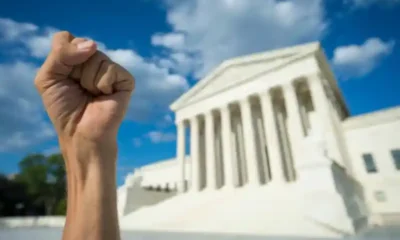

You Don’t Understand the Difference Between Decriminalizing and Legalizing, Do You?
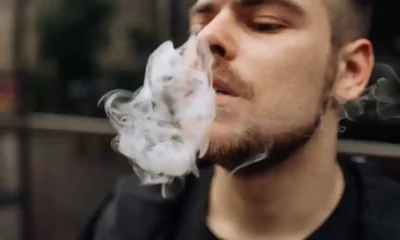

North Dakota Committee Files Ballot Measure To Legalize Adult-Use Cannabis
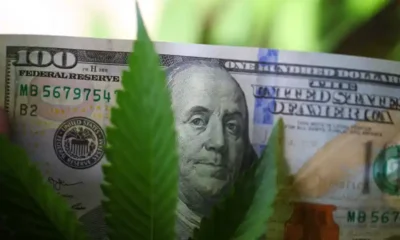

California County Mulls Reduction To Cannabis Cultivation Tax


Cheech and Chong Become Newest Operators in Call of Duty
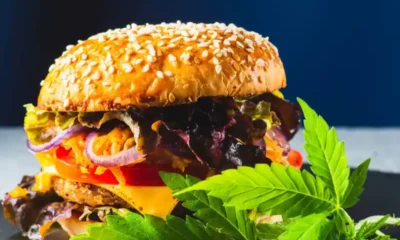

Manage Your Munchies: This Year’s Top 420 Meal Deals
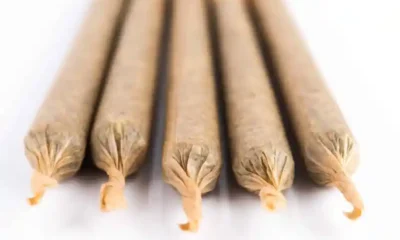

New York Cannabis Control Board Approves 101 New Adult-Use Licenses
